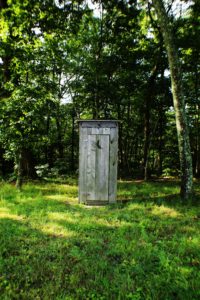Speeding

I’ve known for a long time I don’t manage my empathy very satisfactorily. Several years ago, I found a couple of books by Rose Rosetree (here’s my first wince, because my own last name is Rose; too many roses!), Empowered by Empathy and Become the Most Important Person in the Room. (Here’s my second wince: from empathy to narcissism — becoming the most important person in the room! I’ve never wanted to be the most important person in the room. My lifelong ambition has been to become the invisible person in the room!)
I’m embarrassed to admit these two books, which sound entirely woo from the author’s name to the titles, have been remarkably important tools for me.
Life is strange.
Empathy is “the ability to understand and share the feelings of another” (Oxford Online Dictionary). Whew. The definition, at any rate, is not woo! I’ve heard people use the terms empathy and sensitivity as though they mean the same thing, but they don’t. Highly sensitive personality types and empathy are strongly correlated, but sensitivity and empathy are not identical.

Furthermore, being a highly sensitive personality is not the same as being histrionic. Histrionic personality disorder describes a person with a pattern of uncontrolled attention-seeking emotions. Highly sensitive people are generally not attention-seeking; rather the reverse! If you are interacting with a histrionic personality, you’re walking on eggshells, never knowing when outrage, offense or other extreme (and loudly expressed) emotions are going to be triggered. You’re also being drained and exhausted by the constant demand for attention and validation the histrionic personality requires. Think: Intense, unrelenting drama and trauma.
Highly sensitive people think, feel and process deeply; are insightful; are often introverted; are frequently highly creative; and often struggle with overstimulation and overwhelm. We’re more likely to deal with our trauma privately and silently from under the bed or within a closet.
But I digress … I was writing about managing empathy. Rosetree’s books are filled with various exercises designed to help people figure out how to use their empathy effectively and appropriately, which is to say control it.

It may seem strange to a non-empath, but uncontrolled empathy is a recipe for mental, emotional and physical breakdowns. Unskilled empaths unconsciously push their own feelings, needs, and experience aside in order to absorb the unacknowledged or unwanted feelings of others. Hence, the need to learn how to become the most important person in the room, at least to ourselves, or even as important as everyone else.
Much of learning how to manage empathy boils down to managing our attention and presence. The exercises are ridiculously simple, and at first glance seem like a waste of time.
For example, one of the first exercises is to sit quietly and comfortably and do an eyes open and eyes shut two-minute counting exercise. The assignment is to create a habit of doing this a couple of times a day, just to remind yourself that you are you, having your own internal thoughts, feelings and experience, you are not someone else.
What could be simpler? It takes almost no time, it’s unobtrusive, and it seemed an easy thing to try.
It was easy. I sat in my comfortable chair, in my quiet workspace, the clock on the wall helpfully ticking off the seconds. No sweat.
Right. But the whole point of my space is that it’s mine. I don’t have to share it. Nobody is here to interrupt or distract me. I control the temperature, the clutter, the noise level, and everything else. Neither my empathy nor my sensitivity are challenged in my own space, which I have designed to be exactly the haven and refuge I need.
So I took the exercise to work. I obviously didn’t do it while I was lifeguarding or teaching. Somehow, I felt uncomfortable doing it during a break or while on desk duty, although technically there was time for it. There’s one place, though, where we’re all guaranteed a modicum of brief privacy.

I waited until I needed to visit the bathroom, locked the stall door, shut my eyes and started my count.
There were other women in the locker room, chatting, changing, showering. They seemed a lot more important than me. I should be out there. I should exit the stall in case someone else wanted to be there. I should say hello, greet patrons and patients by name, run a paper towel over the sink to pick up stray hairs and other ick, make sure there’s no trash on the floor. I should make sure that middle shower that drips is firmly turned off. A young mother is looking for a baby changing station. She must be new to the facility and doesn’t know there’s one next door, in the handicapped toilet stall. What’s going on out at the desk? Do they need me? Is the phone ringing? Is someone having to cover for the ten years I’m in the bathroom?
My chest felt tight. I couldn’t breath easily. Anxiety overwhelmed me. I concentrated and got through the first 30 seconds of the exercise. At that point, I felt as though I’d been sitting there for at least an hour, and I was so stressed I felt sick. The compulsion to hurry, hurry, hurry and get back to work was overwhelming. I was either going to cry, vomit, or wind up huddled on the floor next to the toilet.
I was amazed. I felt ridiculous, but there was no denying my physiological panic response to pausing for two minutes to do the exercise, even when combined with a legitimately needed bathroom break. I exited the stall, humbled, horrified and fascinated, washed my hands, said hello to everyone, introduced the young mother to the baby changing station, and went back to work.
I haven’t tried to do the exercise again at work. I don’t want to feel that way again. I had no idea the degree to which I’m compulsively and unconsciously speeding through parts of my life. I know I hate to be pressured or rushed, so I take great pains to give myself lots of time as I navigate through my days. I thought I never rushed anymore.
This experience stirred up one of my earliest memories.
I was trying to help my mom. She had some problems with pain, and I got it into my head it was my job to do as much physical work as I could for her so she would have less pain. Empathy in action. What this meant to me was learning to do things like sort the laundry, make the beds, care for the animals and my younger brother, etc. I vividly remember how important it was to me to learn to tie my shoes, not only so I could tie my own, but so I could tie my brother’s, thus helping Mom avoid stooping, bending or squatting.
I had a little rhyme I’d made up that I’d say to myself as I “helped” (probably I was in the way more than anything else — sorry, Mom!). I never said it aloud, of course, but to myself I would say, “Hurry, hurry, biff and burry,” over and over as I tried to make perfect hospital corners, tuck in the sheets, pick up toys, or measure out dog food. Even then, I was playing with words. I was about three years old at the time.
That rhyme brought back a flood of memories and feelings, all feelings of what I would now call panic or anxiety. Feelings of intense pressure to be good enough, big enough, fast enough, competent enough, perfect enough, strong enough to help those I loved, to really make a difference, to communicate the depth of my caring.
Speed. I don’t know how or why speed became so important, but clearly it did, as my body reacts so violently to even a two-minute pause.
Although I’ve largely extricated myself from rushing through my personal life, when I’m working or interacting with others that unconscious pattern obviously still rules, completely invisible until I tried this simple little exercise at work and uncovered it.

As an intermediate step between doing the exercise in my own space (easy) and at work (impossible, at least for now), I decided to try doing it in my workplace parking lot. As I’m always early everywhere I go (that’s what books are for), I’m usually at work early. Now I park, turn off the car, and start counting. As I close my eyes and begin, I feel compelled to check the time again, though I just checked it seconds before as I turned off the car. What if I’m late? I can’t sit here in the parking lot. They’re counting on me at work! I can sit through the compulsion to exit the car immediately, but it’s uncomfortable.
I feel better with my eyes open, but it’s hard not to be distracted. People are coming and going, some staff, some patients, some patrons. They all seem more important than me. I feel obliged to smile and wave, exchange a friendly word, offer to assist those with mobility problems or poor balance. I can’t just sit here and ignore all those important people. I’m at work! Sort of. Almost. What will they think?
Closing my eyes gets progressively harder. My anxiety kicks in and I feel unsafe. I have to open my eyes to be sure I’ve locked the car. I hear people leaving, arriving, slamming car doors. I need to watch what’s going on around me. I need to see if there’s some kind of a threat. This is hypervigilance, and I’m familiar with the feeling. I need to get out of the car, leave the parking lot, get into the building and go to work. Why am I sitting here sweating, trying to get through this stupid exercise? I’m supposed to be at work!
All this on a sunny winter afternoon, in a small, safe hospital complex parking lot, where I’m heading for a job I love working with wonderful people, and I’m not due to clock in for another fifteen or twenty minutes. Nobody notices me sitting in my car. Nobody is paying me the slightest attention, and if they are, they probably assume I’m looking at or listening to my cell phone! For a whole two minutes!
Hurry, hurry, biff and burry.
I realize I can’t develop the skill to manage my empathy more effectively until I’ve figured out how to stop speeding when I’m around other people. I’m not sure how I’m going to pull that off, but I’m determined to find a way. The habit of speeding is a deeply rooted coping mechanism that spares me from the intense anxiety and panic that occurs when I try to take my energy and attention from those around me and focus on myself. As I weaken the habit of speeding, I’ll reclaim part of my life, including control of my empathy.

Often, as I write and post these essays, I do so with a mixture of amusement and chagrin. Amusement because being human is amusing. We’re so convoluted, so illogical and complex and flawed and beautiful and ridiculous. Chagrin because many people think it’s not quite nice to tell the truth, to reveal our flaws and weaknesses, to talk about sitting in a toilet stall or the mess inside our heads, to reveal our dirty laundry. My rebellious streak is showing. Again. Maybe it’s not nice. I don’t much care, having no particular ambition to live up to “nice,” whatever that means!
I do care about honest connection, and to participate in that it’s necessary to tell the truth and risk being seen. I know I’m not the only person with dirty laundry, or the only person who sits in toilet stalls or flees there for a moment of privacy! I’m pretty sure I’m not the only person speeding in some way, either. Perhaps many or even most of us have a treadmill in some shadowed attic of our psyches to which we’re chained, be it an addiction, a compulsion, a to-do list that’s never satisfied, or any other behavior stealing our time, attention, energy and power.
I don’t want to live like that. Do you?






